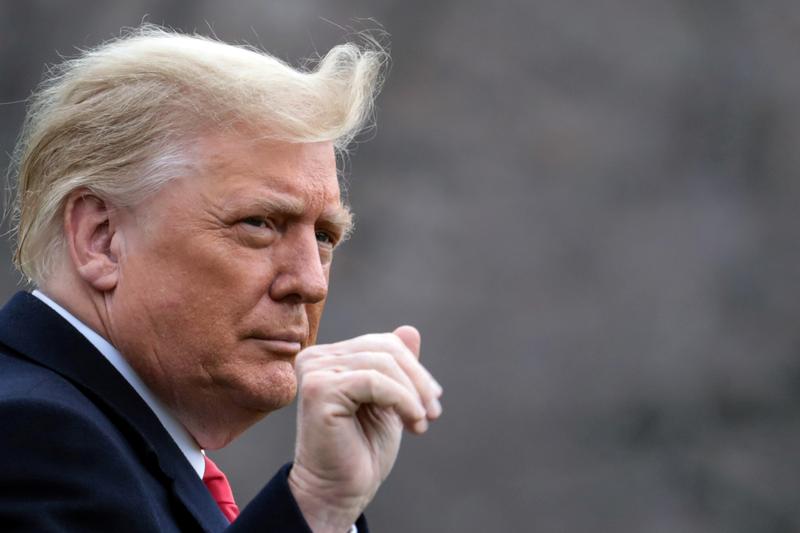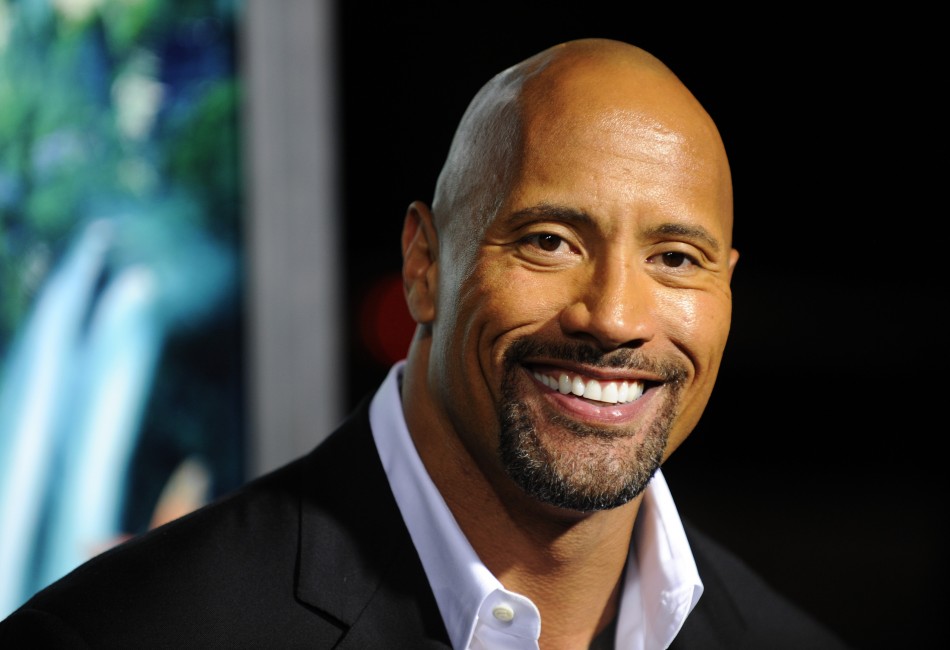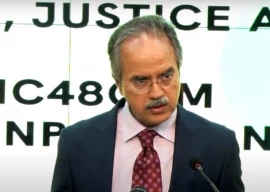
A majority of the House of Representatives voted on Wednesday to make Donald Trump the first US president ever to be impeached twice, formally charging him in his waning days in power with inciting an insurrection just a week after a violent mob of his supporters stormed the Capitol.
With the vote ongoing, a majority of lawmakers in the Democratic-controlled chamber voted in favor of impeachment over an incident that represented a deadly assault on American democracy.
But it appeared unlikely that the extraordinarily swift impeachment would lead to Trump's ouster before the Republican president's four-year term ends and Democratic President-elect Joe Biden is inaugurated on Jan 20.
The Senate's Republican majority leader, Mitch McConnell, rejected Democratic calls to convene the Senate in emergency session to begin an immediate impeachment trial, according to a spokesman.
The House passed a single article of impeachment -- a formal charge -- accusing Trump of "incitement of insurrection", focused upon an incendiary speech he delivered to thousands of supporters shortly before the pro-Trump mob rampaged through the Capitol.
The mob disrupted the formal certification of Biden's victory over Trump in the Nov. 3 election, sent lawmakers into hiding and left five people dead, including a police officer. During his speech, Trump repeated false claims that the election was fraudulent and exhorted supporters to march on theCapitol.
With a large presence of rifle-carrying National Guard troops inside and outside the Capitol, an emotional debate unfolded in the same House chamber where lawmakers had crouched under chairs and donned gas masks on Jan. 6 as rioters clashed with police officers outside the doors.
"The president of the United States incited this insurrection, this armed rebellion against our common country," House Speaker Nancy Pelosi, a Democrat, said on the House floor before the vote.
"He must go. He is a clear and present danger to the nation that we all love". No US president ever has been removed from office through impeachment. Three -- Trump in 2019, Bill Clinton in 1998 and Andrew Johnson in 1868 -- previously were impeached by the House but acquitted by the Senate.
The impeachment comes at a time of gaping political divisions in a pandemic-weary United States near the end of a tumultuous presidency in which Trump governed with a right-wing populist message preaching "America First".
Democratic congressman Julian Castro, a former presidential candidate, called Trump "the most dangerous man to ever occupy the Oval Office".
Congresswoman Maxine Waters accused Trump of wanting civil war and fellow Democrat Jim McGovern said the president "instigated an attempted coup".
Some Republicans argued that the impeachment drive was a rush to judgment that bypassed the customary deliberative process such as hearings and called on Democrats to abandon the effort for the sake of national unity and healing.
"Impeaching the president in such a short time frame would be a mistake," said Kevin McCarthy, the House's top Republican.
"That doesn't mean the president is free from fault. The president bears responsibility for Wednesday's attack on Congress by mob rioters."
Trump's closest allies, such as Ohio Republican Jim Jordan, went further, accusing Democrats of recklessly acting out of pure political interest.
"This is about getting the president of the United States," said Jordan, who received the Presidential Medal of Freedom from Trump in a private White House ceremony this week.
"It's always been about getting the president, no matter what. It's an obsession."
A handful of Republicans backed impeachment, including Liz Cheney, the No. 3 House Republican. "I am not choosing a side, I'm choosing truth," Republican Jamie Herrera Beutler said in announcing her support for impeachment, drawing applause from Democrats.
"It's the only way to defeat fear." In a break from standard procedure, Republican House leaders refrained from urging their members to vote against impeachment, calling the vote a matter of individual conscience.
Under the US Constitution, impeachment in the House triggers a trial in the Senate. A two-thirds majority would be needed to convict and remove Trump, meaning at least 17 Republicans in the 100-member chamber would have to join the Democrats.
McConnell has said no trial could begin until the Senate was scheduled to be back in regular session on Jan 19, one day before Biden's inauguration.
The trial would proceed in the Senate even after Trump leaves office. McConnell said in a memo to his fellow Republicans he has not made a final decision on how he will vote on impeachment in the Senate.
The Capitol siege raised concerns about political violence in the United States once considered all but unthinkable. The FBI has warned of armed protests planned for Washington and all 50 US state capitals ahead of Biden's inauguration.
Trump on Wednesday urged his followers to remain peaceful, saying in a statement, "I urge that there must be NO violence, NO lawbreaking and NO vandalism of any kind. That is not what I stand for, and it is not what America stands for."
Impeachment is a remedy devised by America's 18th century founders to enable Congress to remove a president who has, according to the Constitution, committed "treason, bribery or other high crimes and misdemeanors."
If Trump is removed, Vice President Mike Pence would become president and serve out his term. The House impeached Trump after he ignored calls for his resignation and Pence rebuffed Democratic demands to invoke a constitutional provision to remove the president.
The House previously voted to impeach Trump in December 2019 on charges of abuse of power and obstruction of Congress stemming from his request that Ukraine investigate Biden and his son Hunter ahead of the election, as Democrats accused him of soliciting foreign interference to smear a domestic political rival.
The Senate in February 2020 voted to keep Trump in office. Wednesday's article of impeachment accused Trump of "incitement of insurrection," saying he provoked violence against the US government in his speech to supporters. The article also cited Trump's Jan 2 phone call asking a Georgia official to "find" votes to overturn Biden's victory in the state.
During his Jan 6 speech, Trump falsely claimed he had defeated Biden, repeated unfounded allegations of widespread fraud and irregularities in a "rigged" election, told his supporters to "stop the steal," "show strength," "fight much harder" and use "very different rules" and promised to go with them to the Capitol, though he did not.
"If you don't fight like hell, you're not going to have a country anymore," Trump told his supporters.
Democrats could also use a Senate impeachment trial to try to push through a vote blocking Trump from running for office again.
Lawmakers delivered speech after speech, wearing masks amid the Covid-19 pandemic. "This is a moment of truth, my friends," Democratic congressman Gerry Connolly told his colleagues ahead of the vote.
"Are you on the side of chaos and the mob or are on the side of constitutional democracy and our freedom?" Reuters
1732603002-0/lamar-(4)1732603002-0-405x300.webp)
1720420084-0/brad-pitt-(2)1720420084-0-165x106.webp)









1603198761-0/download-(1)1603198761-0-270x192.jpg)







COMMENTS
Comments are moderated and generally will be posted if they are on-topic and not abusive.
For more information, please see our Comments FAQ